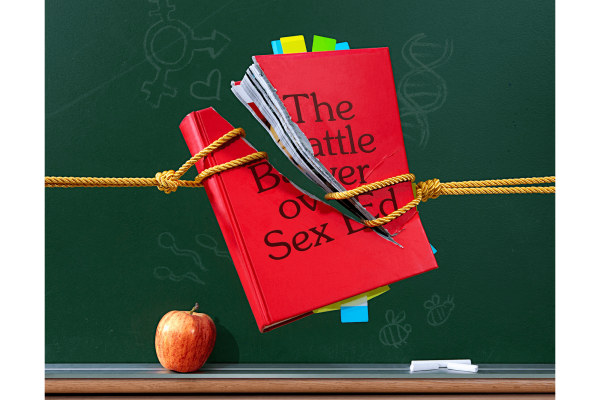IT MEANS A LOT to Jack Teter that Christians are getting involved in the fight for better sex education. “A lot of folks in my generation got shame-based sex ed,” said Teter, the regional director of government affairs for Planned Parenthood of the Rocky Mountains. “So, it’s really cool to see these groups talking about the morals of consent, love, and communication.”
For Candace Woods, it’s a spiritual issue. Woods, who is in the ordination process with the United Church of Christ and a facilitator for the Our Whole Lives sex education curriculum developed by the UCC and the Unitarian Universalist Association, was brought up in so-called purity culture, and the most guidance she had from her church and community growing up was “Don’t have sex.” As a consequence, when she married a man 14 years her senior, she said that she “was very unprepared for a sexual relationship.”
As that relationship was ending in divorce, Woods encountered the Our Whole Lives curriculum through a UCC congregation. That curriculum, which is written for secular as well as faith-based education for kindergarteners through adults, emphasizes self-worth, responsibility, sexual health, justice, and inclusivity—values Woods held spiritually but until then had never heard applied to sexuality. “I found myself being incredibly healed by this work,” Woods told Sojourners, and as a result she has felt called to advocate for more kids to have access to curricula such as Our Whole Lives.
Woods joined others in advocating for Colorado’s HB19-1032, which made a minor adjustment to an existing law: It added teaching of consent as an “affirmative, unambiguous, voluntary, continuous, knowing agreement between all participants in each physical act within the course of a sexual encounter or interpersonal relationship.” Among those advocating for the bill was the Denver-based racial justice nonprofit Soul 2 Soul Sisters. According to Briana Simmons, who coordinates the “Black Women’s Healing, Health, and Joy” program for the organization, comprehensive sex education provides information that is vital to bodily autonomy, an important value in Womanist faith traditions, Christian and otherwise. “We can only make the best decision for ourselves if we have the most accurate and comprehensive information,” Simmons said. “At that point, we can consult with whomever we trust, be that a faith leader or a higher power, as we make those decisions for ourselves.”
The bill ultimately passed, but Colorado, like many states, has felt the push and pull between progressive and conservative political movements in the past year. After the racial reckonings of 2020, when millions of Americans participated in Black Lives Matter marches and online campaigns, 2021 saw a profusion of legislation proposed and passed to prevent schools from teaching about systemic racism. In many cases, sex education follows the same rhythm. Teter has seen pushback in the form of “bad faith” bills used mostly by conservative lawmakers to voice opposition to recent progress. For instance, one bill called for high-definition footage of a human embryo to be shown during sex education classes, ostensibly to discourage abortion. But such footage doesn’t exist, Teter said, and such “off-the-cuff bills” have little chance of going anywhere. On the whole, Teter said, comprehensive sex education is “in a good spot” in Colorado.
That’s not the case everywhere.
Read the Full Article

